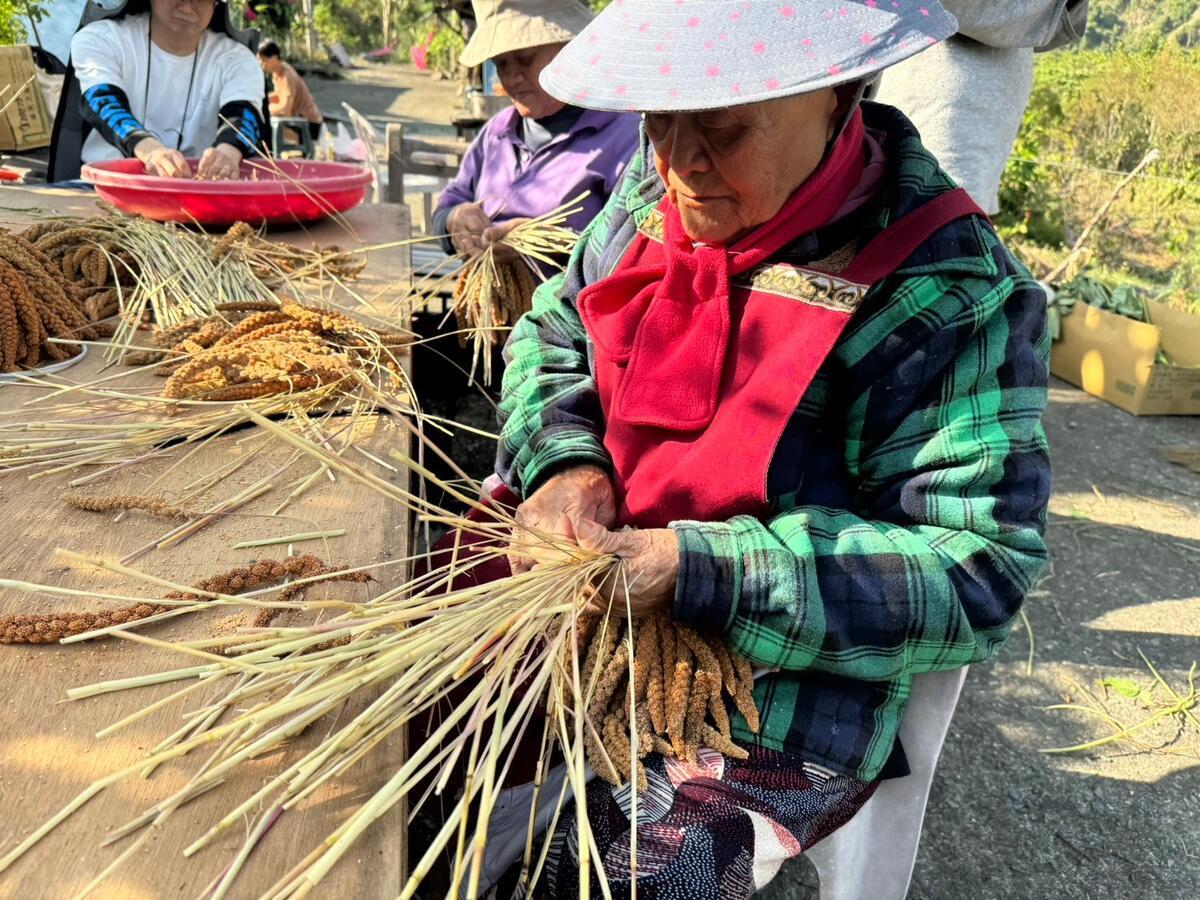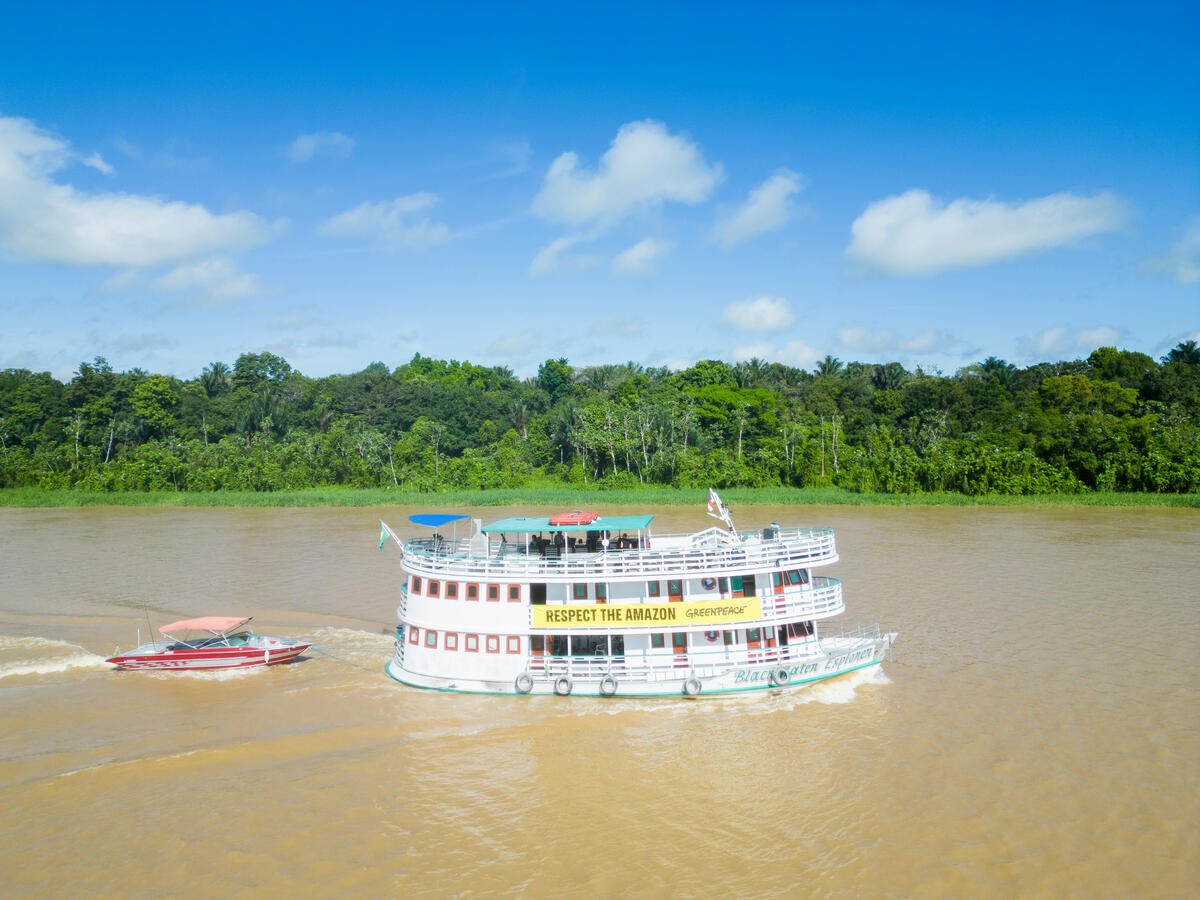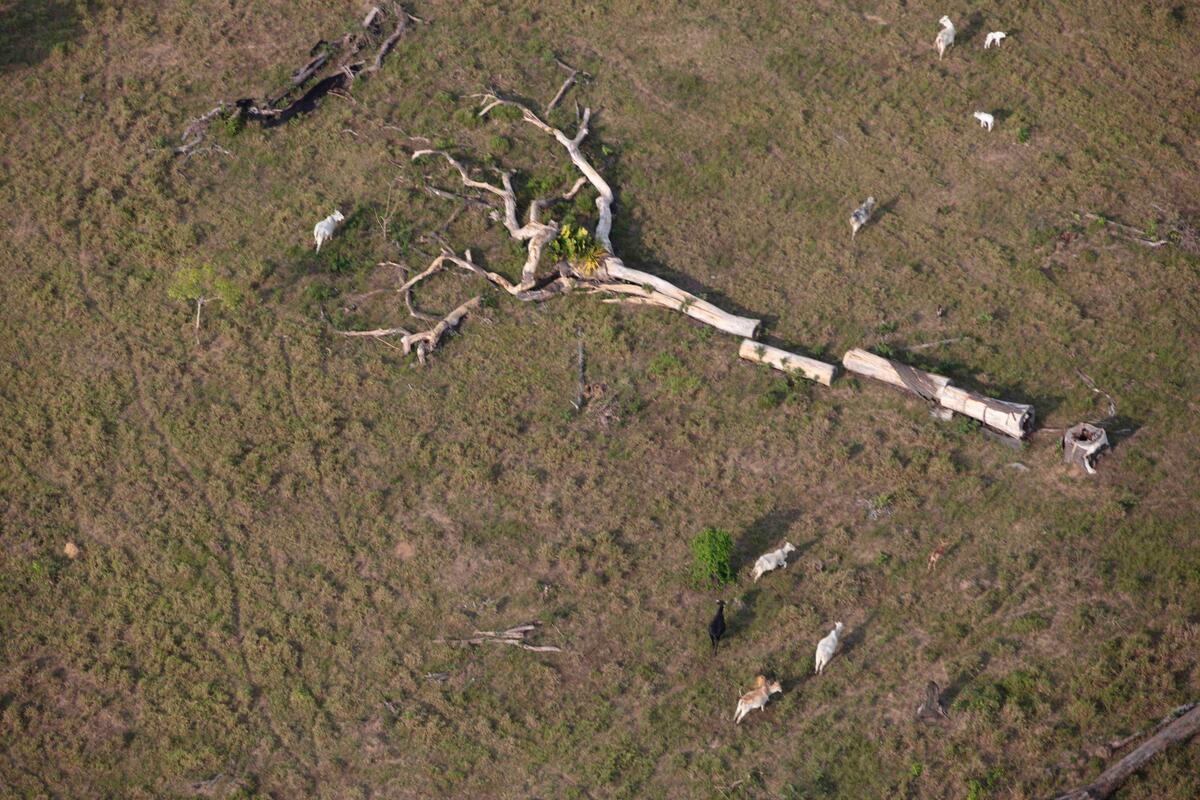Amsterdam – More than 60 activists from all over Europe, volunteering with Greenpeace Netherlands, are blocking a mega-ship arriving in the Netherlands with 60 million kilos of soy from Brazil, to demand a strong new EU “anti-deforestation” law. Since 12 am local time, activists are blocking the lock gates the 225-meter-long Crimson Ace must pass to access the port of Amsterdam. The Netherlands is the gateway to Europe for the import of products such as palm oil, meat and soy for animal feed, often linked to nature destruction and human rights violations.
“There’s a draft EU law on the table that could end Europe’s complicity in nature destruction, but it is far from being strong enough. Hundreds of ships carrying soy for animal feed, meat, and palm oil come to our ports every year. Europeans might not drive the bulldozers, but through this trade, Europe shares responsibility for clear-cut felling in Borneo and fires in Brazil. We will lift this blockade if Minister van der Wal and other EU ministers publicly announce that they will fix the draft law to protect nature from European consumption,” said Andy Palmen, director of Greenpeace Netherlands.
Action in IJmuiden
Volunteers from 16 countries (15 European countries and Brazil) and Indigenous leaders from Brazil are taking part in the peaceful protest at the sea gate in IJmuiden. Climbers are blocking the lock gates and have hung a banner that reads ‘EU: Stop nature destruction now’. On the water, activists are sailing dinghies carrying banners in their own languages. Large inflatable cubes are floating on the water in front of the lock gates, carrying the message ‘Protect Nature’ and the names of more than ten thousand people from six different countries who support the protest. The Indigenous leaders are joining the protest from aboard the Beluga II, Greenpeace’s 33-meter-long sailing ship, with a banner between the masts reading ‘EU: Stop nature destruction now’.
Alberto Terena, Indigenous Leader of the Terena People’s Council in the state of Mato Grosso do Sul said: “We have been driven from our land and our rivers have been polluted with poison, all to make room for agribusiness expansion. Europe shares responsibility for the destruction of our homes. But this legislation can help to stop future destruction. We call on ministers to seize this opportunity, not only to ensure indigenous people’s rights, but also for the future of the planet. The production of feed for your industrial animals and the beef that is imported should no longer mean our suffering.”
Andy Palmen, director of Greenpeace Netherlands: “The mega-ship Crimson Ace is part of a broken food system linked to nature destruction. The vast majority of all soy disappears into the feed troughs of our cows, pigs and chickens. Nature is being destroyed for industrial meat production, while what we really need is nature to keep the earth liveable.”
A new EU law
Greenpeace demands a solid new EU law to ensure that products that might be linked to nature destruction and human rights abuses can be traced back to where they are produced. The law must protect other ecosystems as well as forests – like the diverse Cerrado savanna in Brazil that is disappearing as soy production expands. The law must also apply to all commodities and products that put nature at risk, and properly protect internationally recognised human rights, including legal protections for Indigenous Peoples’ land.
Environment ministers from the 27 EU countries will meet on June 28 to discuss the draft anti-deforestation law. Greenpeace Netherlands is taking action today to ensure that EU ministers take a strong position on improving the law.
Notes:
Photos and videos of the action can be downloaded from the Greenpeace Media Library.
Contact for international media:
Jelle De Mey, +32 (0) 476 20 78 11, [email protected]
For questions, photos, video or other material:
Myrthe Verweij, +31(0)6 2700 0063, [email protected]



